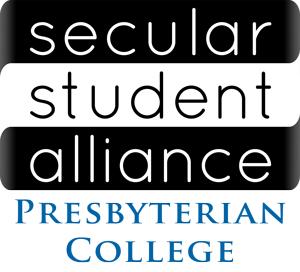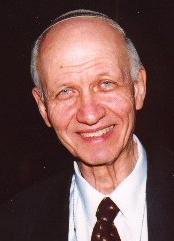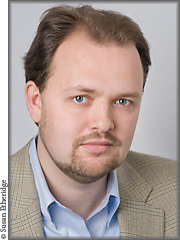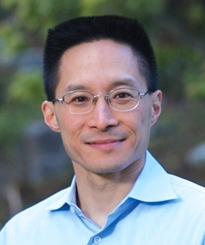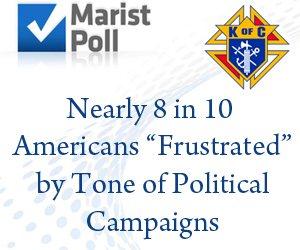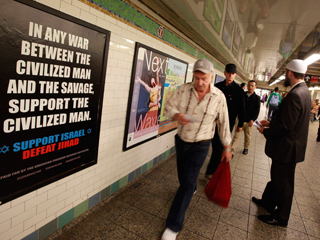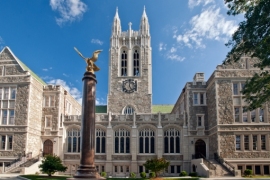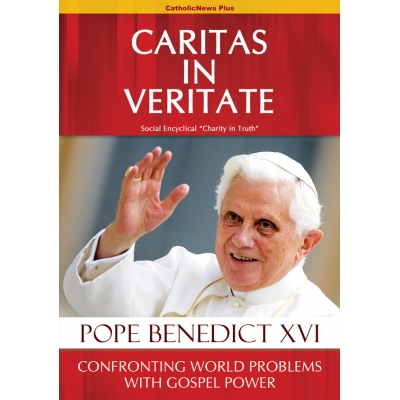
I don’t know of many political conservatives who would say something like this:
To manage the global economy; to revive economies hit by the crisis; to avoid any deterioration of the present crisis and the greater imbalances that would result; to bring about integral and timely disarmament, food security and peace; to guarantee the protection of the environment and to regulate migration: for all this, there is urgent need of a true world political authority …
The quote is italicized in Benedict’s 2009 encyclical letter, Caritas in Veritate (“Charity in Truth”). In the wake of the financial meltdown, the document called for regulation of the world economy through international law. In other words: a global New Deal. My friend and occasional collaborator, Drew Christiansen, S.J., pointed out in America magazine’s online edition yesterday that this social encyclical “may be the most radical since John XXIII’s Pacem in terris 50 years ago.”
Contrary to what some of my secular liberal friends might think, this is not like referring to the most left-wing thing ever said by Karl Rove. Catholic social teaching is already left of center (to the extent that ideological labels are useful here) on issues of peace and economic justice. It means something to say that a social encyclical is especially radical on matters such as poverty and the role of government.
Christiansen cited Benedict’s concept of “political charity,” which breaks down the distinction between charity and justice (a distinction overdrawn by many political conservatives who say private charities, not government, should help the poor and struggling).
Here are some powerful words along that line, from the encyclical:
I cannot “give” what is mine to the other, without first giving him what pertains to him in justice. If we love others with charity, then first of all we are just towards them. Not only is justice not extraneous to charity, not only is it not an alternative or parallel path to charity: justice is inseparable from charity, and intrinsic to it.
Catholic Politics, Benedict Style
There’s no doubt that Benedict earned his stripes as a cultural and theological conservative. Still, I find it revealing that during this pontificate, some liberal theologians began latching onto Benedict as a way of countering the rightward political drift of the American bishops. I first caught a glimpse of this maneuver at a presentation by noted moral theologian Lisa Sowle Cahill of Boston College. Here’s how I described the scene in a profile of her for Commonweal (January 14, 2011).
In the conference room of a Tudor-style house across the street from Boston College’s Chestnut Hill campus, Cahill is trying on a new idea. She is giving a luncheon talk, titled “Benedict XVI and the U.S. Bishops: Political Differences and the Difference They Make,” at the Boisi Center for Religion and American Public Life. Her new idea amounts to this: people who think like Lisa Cahill are more or less in flow with the political currents in Rome, but the American bishops are not.
On the surface it is not an idea she wears exceedingly well, as a feminist theology professor. But she has a point, especially if one accepts the big distinction she makes between issues and politics. “The positions [of the bishops and Benedict] are very similar if not identical, but the way they are played out politically is very different,” she tells a group of twenty-five attendees, mostly faculty members and graduate students. Take Caritas in veritate, Benedict’s first social encyclical, issued in June 2009. Though the letter reiterated the pope’s opposition to abortion and euthanasia, it focused overwhelmingly on other issues such as world poverty, development, reform of international economic institutions, and access to health care. In contrast, Cahill asserts, the U.S. bishops have concentrated on abortion and related issues virtually to the exclusion of other social imperatives. Her conclusion? The American episcopacy is carrying out its politics differently—“and, I would say, in a very biased way.”
The pope also devoted an entire chapter of Caritas to environmental concerns, which he addressed on many occasions. That first social encyclical by Benedict has turned out to be his last (unless there’s another February surprise), but it ought to be enough to temper some of the commentary about this conservative papacy. …read more
